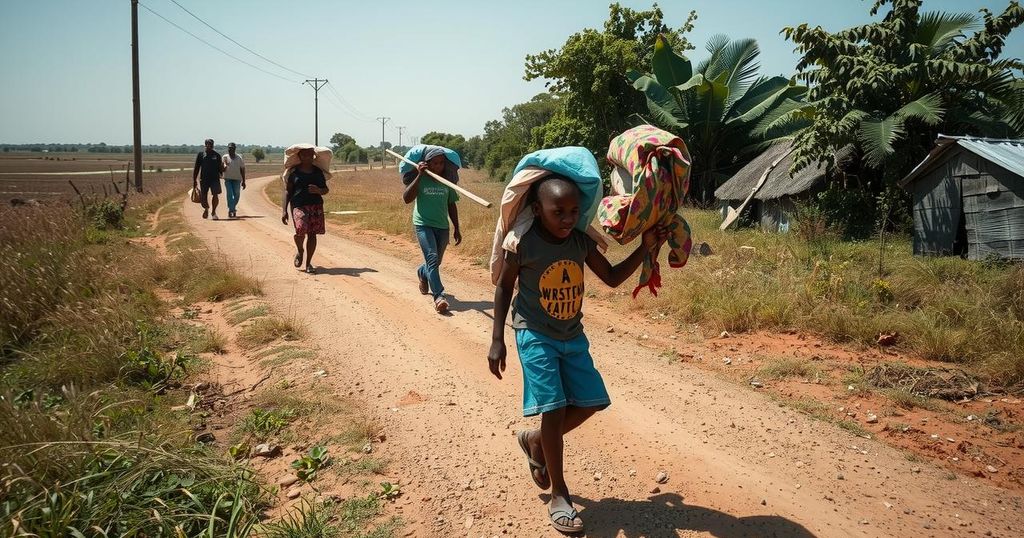Over 13,000 Mozambicans Flee to Malawi Amid Post-Election Violence

Over 13,000 Mozambicans have fled to Malawi amid violence following a disputed election. Reports indicate critical food shortages and the vulnerability of women and children among refugees. Local authorities and aid organizations are mobilizing resources to support these individuals, while assessing further needs.
In light of escalating violence following the controversial presidential election in Mozambique, over 13,000 Mozambicans have sought refuge in Malawi. Recent reports indicate a significant influx of refugees, primarily women and children, fleeing the turmoil triggered by the disputed election results. Traditional leader Sofia Jimu, among those displaced, highlighted the dire conditions at evacuation centers, particularly the acute shortage of food, as exemplified by the distressing incidents of children collapsing from hunger.
The political unrest in Mozambique intensified after the Constitutional Council officially declared Daniel Chapo of the ruling Frelimo Party as the victor of the October 9 election. This result has been firmly contested by Venancio Mondlane, the leader of the opposition Podemos party. Reports from Plataforma Decide, a monitoring organization, have indicated that post-election turmoil has resulted in over 200 fatalities since October.
Dominic Mwandira, the commissioner for Nsanje district, addressed the immediate challenges faced by local authorities in accommodating the influx of asylum-seekers. He noted a critical lack of resources, stating, “In terms of food and then non-food items, tents, issues of water, they are several,” while expressing optimism over the support from various partners, including the Malawi Red Cross Society and Plan International.
Jane Mweziwina of Plan International emphasized the vulnerability of specific groups within the asylum-seeking population, including women, children, and individuals with disabilities. She asserted the need for special consideration by local leadership in terms of security, accommodation, and provision of food for these at-risk groups.
Efforts are underway by authorities in Malawi to relocate the refugees to a more spacious accommodation center. Meanwhile, the Malawi Department for Refugees, alongside the United Nations High Commissioner for Refugees, is conducting assessments to gauge the specific needs of the asylum-seekers.
The situation in Mozambique has worsened since a disputed presidential election on October 9, 2023, which led to significant political unrest. With the confirmation of Daniel Chapo’s victory by the Constitutional Council, protests erupted, resulting in clashes that have claimed more than 200 lives. Many residents, fearing for their safety and facing severe hardship, have fled to neighboring Malawi, exacerbating humanitarian challenges in both the host country and the refugees’ communities. Local authorities and international organizations are mobilizing to assist those affected by this crisis.
In conclusion, the influx of Mozambican refugees into Malawi underscores the severe humanitarian impact of the political crisis in Mozambique. As local authorities and humanitarian organizations work to address the immediate needs of these displaced individuals, the situation highlights the challenges of resource management in response to significant surges in refugee populations. The safety, health, and well-being of vulnerable groups remain paramount as assistance efforts continue in the face of evolving circumstances.
Original Source: www.voanews.com







